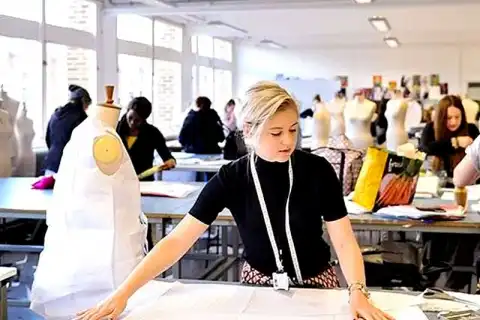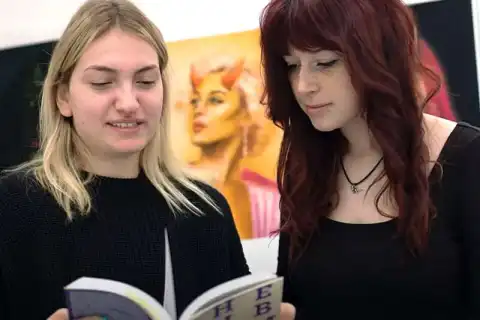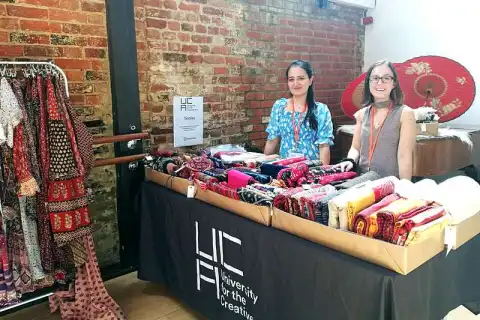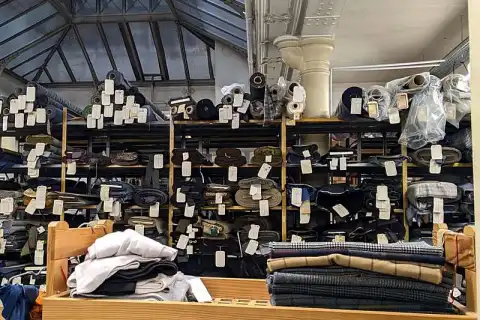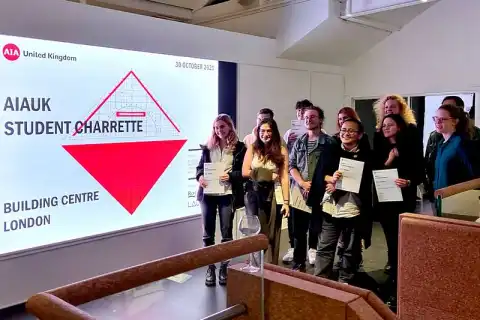Master of Arts - Textiles
- 1 year
- Duration
- 18,000 GBP
- Price
- Rolling admission
- Start
- Rolling admission
- Deadline
- Master
- Degree
- Campus
- Format
- Epsom / United Kingdom
- Location
Program description
Our MA Textiles programme at UCA Epsom will help you deepen your personal research into textile art, culture, craft, and design while allowing you to integrate your practical textiles expertise with a personal project.
You will be inspired to push yourself, investigate, and modify your own work utilising novel materials, methods, and ideas in order to emerge with a fresh perspective on the world. Your job as a freelance design professional, curator, gallery director, or textile designer will be aided by this new outlook and feeling of self.
Our connections to well-known designers and artists from a global cohort will be advantageous to you. Expert practitioners, designer-makers, artists, and researchers who operate in the field, produce commissions, routinely exhibit, and are published globally make up our team. We also have visiting scholars, academics, associate lecturers, and notable professors on board.
The course schedule offers chances to work on actual projects with reputable galleries. The focus of lectures and seminars is professional practise, and you can anticipate hearing from well-known guest lecturers from the fields of art, craft, business, and design.
We have a large list of alumni who have established their own practises as textile artists, designer-makers, and academics who work in education.
You can choose the Integrated International Pre-Masters, a year-long preparatory programme of study to get you ready for your master's in the UK, improving your speaking and writing skills in English along with your specialty skills, research knowledge, and self-confidence.
Program structure
Term one
The University, its technical workshops, and other resources will be introduced to you. In the first term, you'll take part in a variety of lectures and seminars and begin to investigate your creative practise.
- Theory and Analysis
You will question and support your own practise through developing critical reading, observation, handling, and in-depth thought about projects, artefacts, and contextual research.
- Exploratory Practice
By adopting a questioning, analytical, and interrogative approach to your work, you'll start to transform your practise into a type of inquiry during this course, empowering you to evolve into a self-sustaining reflective practitioner.
Term two
You start working on your MA project during term two, analysing and testing the objectives of your proposal during an extended period of self-directed study.
- Reflective Practice
One of the most crucial ideas for a creative practitioner is reflective practise. It gives you the ability to become your own best critic, allowing you to advance and build your practise on your own. The tasks completed in this unit ought to start addressing the research queries you developed and investigated in Exploratory Practice.
Even though your research project won't be finished yet, your work should be much more resolved and establish a distinct line of inquiry—through materials, concept, and context. During this course, you will also have the chance to complete a professional practise period.
Term three
You'll use the knowledge you learn through your research to produce a final body of work in the third term of the course.
- Major Project
This is the end of your studies and serves as an exposition of the key ideas and concepts that you have learned throughout the course. As a result, it must resolve the issues raised by earlier project units and show evidence of advanced conceptual, theoretical, and technical expertise acquired over a lengthy period of self-directed study.
Price
Fee for two semesters (1 year) is 18,000 GBP for international students
We have offer a range of scholarships and fee discounts.
Requirements for applicants
If you do not have qualifications from the United Kingdom, we will accept equivalent qualifications from your native country for admittance into our programs.
In addition to academic credentials, some of our courses require a portfolio of previous work.
For our Master's courses, we usually require that you have successful completion of your Bachelor's degree or equivalent from a recognised university.
English Language requirements for MA/MSc & MBA courses:
- IELTS UKVI or Academic - Listening 5.5, Reading 5.5, Speaking 5.5, Writing 5.5, Total 6.5
- Test of English as Foreign Language (TOEFL) iBT - Listening 17, Reading 18, Speaking 20, Writing 17, Total 90
- Pearson Test of English (Academic) - Listening 59, Reading 59, Speaking 59, Writing 59, Total 59
- Cambridge English Advanced (CAE) or Cambridge English Proficiency - Listening 162, Reading 162, Speaking 162, Writing 162, Total 176
- Trinity College London Integrated Skills in English (ISE) - Listening Pass, Reading Pass, Speaking Pass, Writing Pass, Total ISE III
- LanguageCert International ESOL SELT - Listening 38, Reading 38, Speaking 38, Writing 38, Total B2 Communicator High Pass
Portfolio requirements
We'll need to examine your written or graphic portfolio for these courses in order to review it. Once you've applied, we'll send you an invitation to submit your portfolio via your applicant portal; more details will be given at that time. This can also be arranged for you if you would prefer to evaluate your work with the Academic Team in person while on campus.
About the university

The UCA team firmly believes that creativity enhances the vitality, innovation, and humanity of global communities. That is why the university has been a fervent supporter of creative research and teaching for the past 160 years.
Architecture, crafts, fashion, graphic design, illustration, fine art, photography, film, media, the performing arts, and creative business are among areas of study offered by the university. Employers in the creative sector hold a high regard for this programs because of their excellent teaching standards.
We want to inspire people to use their creativity to drive change, overcome challenges and improve the lives of others.
So we’ve designed our university to be an inclusive, dynamic environment. Our campuses across Surrey and Kent, our Institute for Creative Innovation in Xiamen, China, and our homes within partner organisations such as the Maidstone Television Studios all have one thing in common: they are places to forge inspiring partnerships, make work with purpose and build real solutions to human problems across the globe – whether that’s as part of our vibrant teaching and research community, or as a student on one of our courses.
Read more about University for the Creative Arts (UCA), United Kingdom

